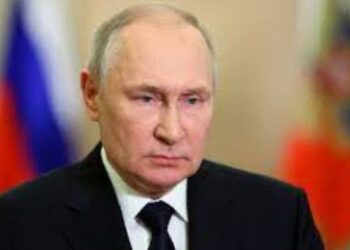
The International Monetary Fund, (IMF) has warned that financial sanctions imposed on Russia are threatening to gradually dilute the dominance of the U.S. dollar and could result in a more fragmented international monetary system, Gita Gopinath, Fund’s First Deputy Managing Director, told The Financial Times.
Russia has been hit with a plethora of sanctions from the United States and its allies for its late-February invasion of Ukraine. Russia has called the invasion a ‘special operation’ to disarm its neighbour.
“The dollar would remain the major global currency even in that landscape but fragmentation at a smaller level is certainly quite possible,” Gopinath told the newspaper in an interview, adding that some countries are already renegotiating the currency in which they get paid for trade.
She said that the war will also spur the adoption of digital finance, from cryptocurrencies to stablecoins and central bank digital currencies.
The IMF did not immediately respond to a Reuters request for comment.
Gopinath told the FT that the greater use of other currencies in global trade would lead to further diversification of the reserve assets held by national central banks.
She had earlier said the sanctions against Russia do not foreshadow the demise of the dollar as the reserve currency and that the war in Ukraine will slow global economic growth but will not cause a global recession.
3) Niger President Thanks Nigeria Over $1.96bn Kano-Katsina-Maradi Railway Project
President Mohammed Bazoum of Niger Republic has expressed appreciation to President Muhammadu Buhari for approving the $1.96 billion Kano-Katsina-Maradi railway project.
The Nigerien leader, who was on State Visit to Nigeria, made the commendation after a closed-door bilateral talks with Buhari in the Presidential Villa, Abuja, on Wednesday.
Buhari had, in February 2021, performed the ground-breaking ceremony of the Kano–Dutse–Katsina–Maradi 284 kilometer rail project connecting Kano in Nigeria to Maradi in Niger Republic.
The project, approved by the Federal Executive Council in September 2020, was believed to be crucial to rail development in Nigeria and in the West African sub-region.
It was being executed by Mota-Engil Group, a multinational engineering, and construction company.
The project, with 15 stations along the corridor, would boost socio-economic activities in Kano, Katsina, and Jigawa States in Nigeria, as well as Maradi in Niger Republic.
Bazoum said, “On economic issues, we discussed the Kano-Katsina-Maradi railway project and this project is an infrastructure that will integrate the economies of Nigeria and Niger.
“And so, I’m here to thank President Buhari for his efforts at ensuring that this project has taken off and I hope that it will be sustained because this project will radically change the trading exchange between the two countries.
“We also spoke about the gas pipeline in the sense that gas and oil have now become an issue in world politics, in the world economy.”
He also lauded Nigeria for leading the way in funding activities of the Multi-National Joint Task Force, currently maintaining security in the Lake Chad Basin.
“My visit coincides with the very big operation that is taking place jointly today in the Lake Chad Basin region against the terrorists, and this big operation is being conducted by MNJTF – the Multinational Joint Task Force.
“And as you will know very well, the operations of the Multinational Joint Task Force is funded almost entirely by Nigeria. And this operation is meant to help in providing security challenges that both of our countries are facing.
“I want to reiterate my recommendation and thanks to President Buhari, who, because of his support, this operation is going on and will be very much continuing in future,” he said.
The Nigerien leader expressed optimism that Nigeria and Niger Republic would continue to promote ties in the areas of security and economic development.
It was gathered that the visiting Nigerien leader was also hosted to a lunch by Buhari shortly after their bilateral engagement. NAN











